With technological advancement comes both opportunities and challenges, such as a deepening digital divide and the looming threat of climate change. At the 2024 Inclusion Conference on the Bund in Shanghai, entrepreneurs from the 10×1000 Tech for Inclusion community presented solutions that address these issues head-on.
10×1000 Tech for Inclusion, initiated by Ant Group in collaboration with the International Finance Corporation (IFC), is more than just a nondescript non-profit platform—it aims to empower the next generation of digital economy drivers. Built on three foundational pillars—learn, connect, and inspire—10×1000 equips members with tools and opportunities they need to make a tangible impact, particularly in the realms of tech for inclusion and sustainability.
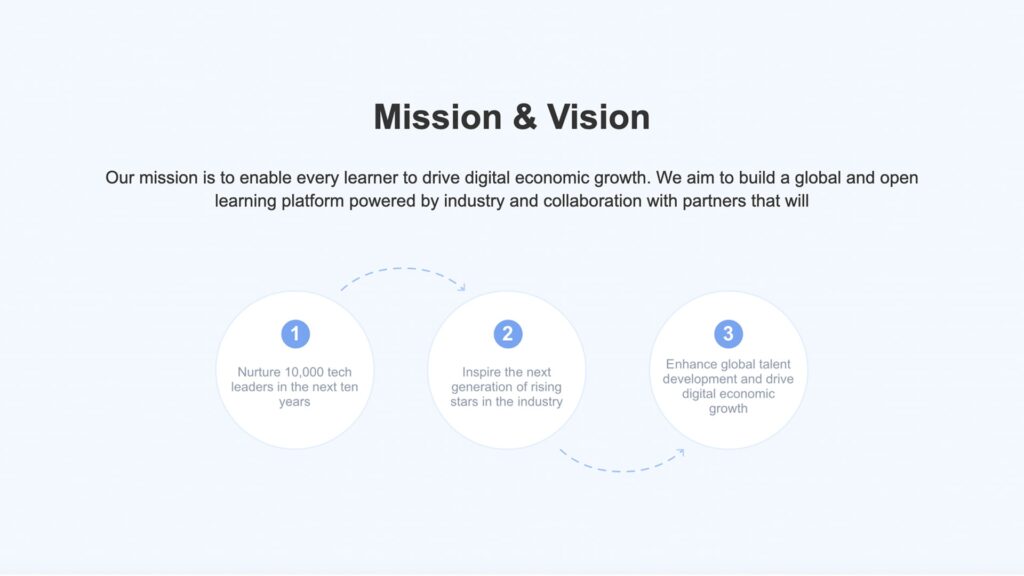
“In a rapidly evolving digital landscape, international exchanges are not merely a catalyst for innovation, they are the essence of progress, ” said Leiming Chen, chief sustainability officer of Ant International. “The 10×1000 Tech for Inclusion platform empowers emerging tech leaders worldwide to engage with diverse perspectives, cultivating solutions that address global challenges with local relevance. These solutions will help us confront climate change and seize the opportunities presented by digital innovation.”
Among the participants who stood out at the Inclusion Conference was Joseph Aditya, founder and CEO of Ralali.com. His company simplifies B2B transactions across Southeast Asia, making interactions between buyers and sellers smoother and more transparent.
Recognizing geographic challenges Indonesia faces as the world’s largest archipelagic nation, Aditya emphasized the crucial role of logistics and food distribution, particularly in rural areas. His platform aims to address these issues by combining technology with business and financing support to help small and medium enterprises operate more efficiently.
Through Ralali.com, Aditya helps Indonesian businesses—especially those in the food sector—navigate logistical and nutritional hurdles, improving both livelihoods and business operations.
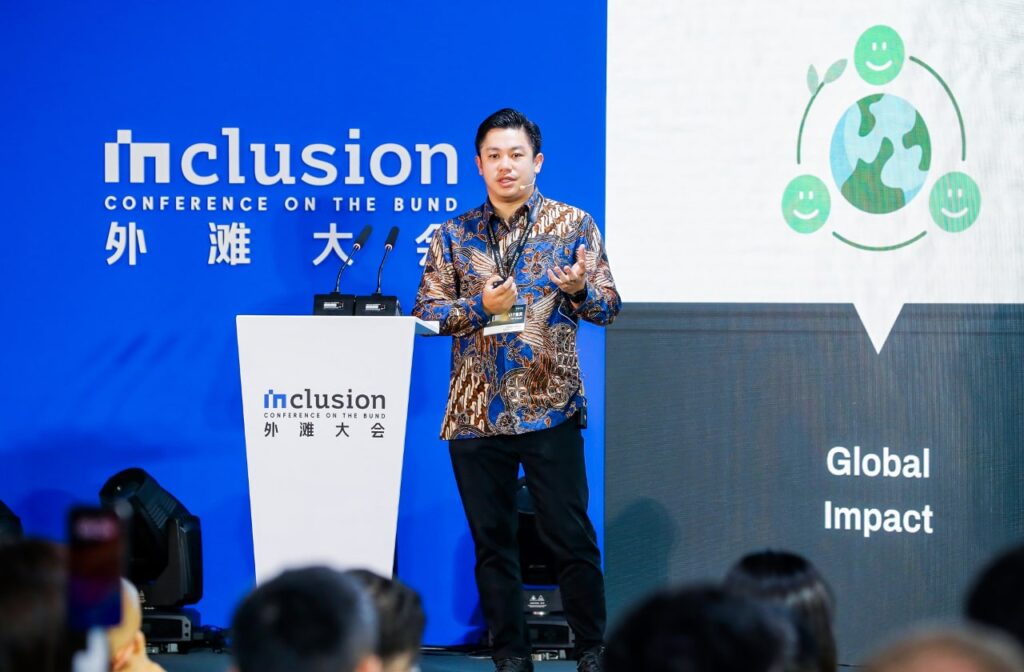
Wendy Leong, founder and CEO of Mobiva, presented her artificial intelligence-driven solutions designed to empower communities with disaster response systems. Mobiva’s platform enables local communities to leverage real-time data for disaster preparedness and resource management, connecting NGOs and emergency responders to provide predictive analytics for enhanced community safety.
The technology also extends to healthcare, where AI tools can predict high-risk health conditions in underserved areas, helping reduce the healthcare burden in rural communities.
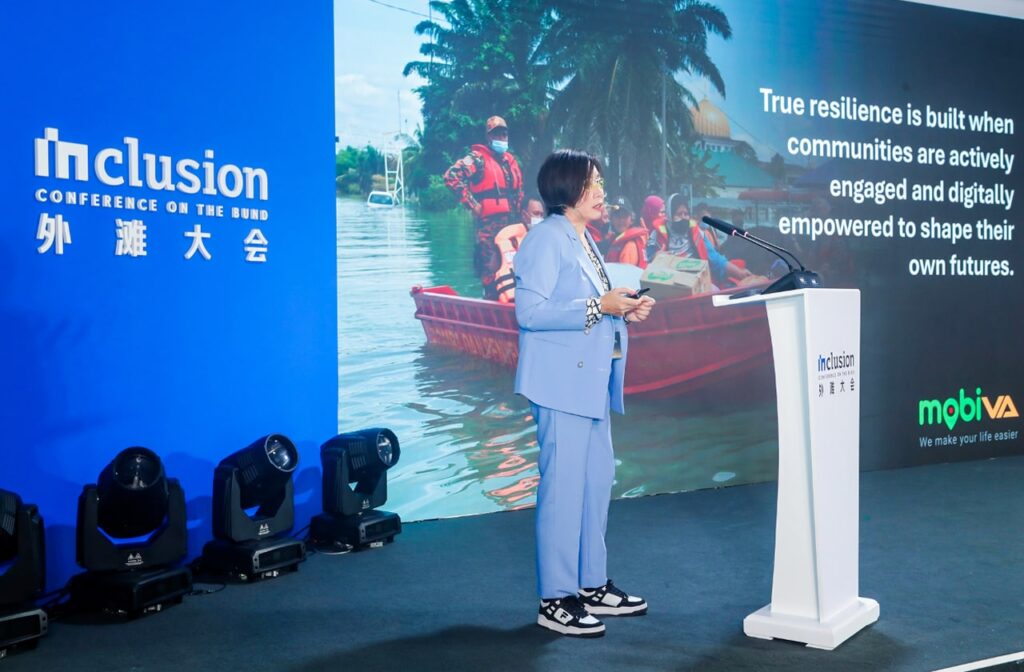
Monish Mithra Waran Maheswaran, co-founder and CEO of WAMECO, shared his vision for sustainable waste management. His company is leading the shift from a linear economy to a circular one, where resources are used more efficiently, and waste is significantly minimized.
For Maheswaran, the real challenge in the waste management industry is not a lack of innovation but a lack of communication between key stakeholders. WAMECO’s digital platform bridges this gap by connecting businesses with the right partners throughout their product lifecycle, ensuring transparency and sustainability.
Through its scalable platform, WAMECO helps businesses manage waste sustainably and contribute to a circular economy. Ultimately, Maheswaran aims to drive sustainability by offering a complete ecosystem that integrates technology, data analysis, and transparent reporting.
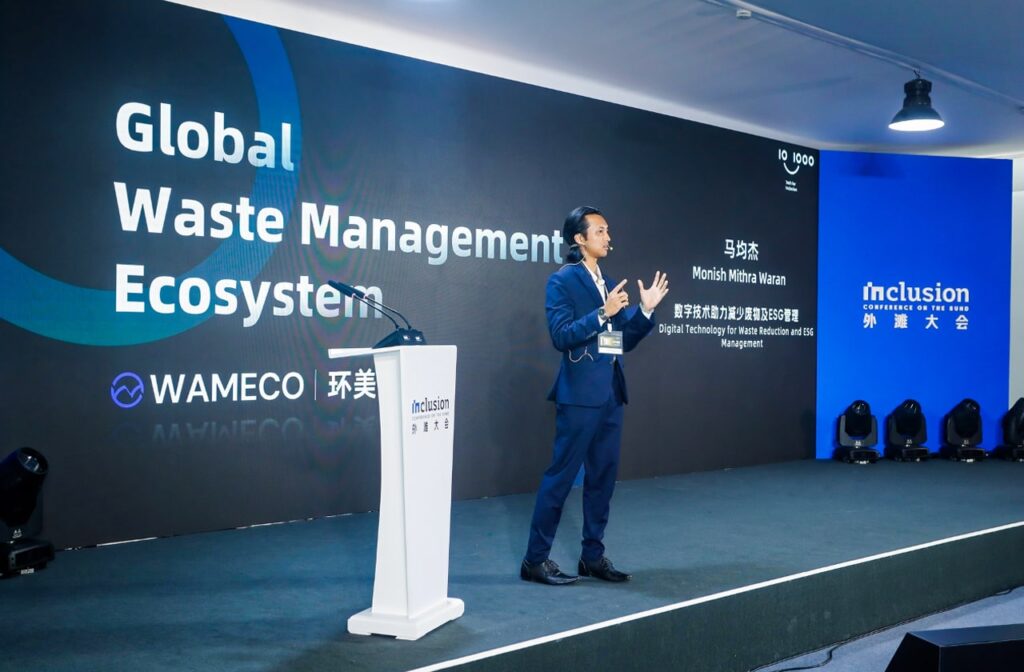
Lumbie Mlambo, founder of JB Dondolo, spoke about her work in providing clean water access to underserved communities in Africa. Having grown up in Zimbabwe, where she would carry water for miles, Mlambo is determined to change the way access to water is managed.
JB Dondolo’s AI-powered tool, SARE+, is said to tackle water sustainability and create job opportunities, particularly for women and girls. Through JB Dondolo, Mlambo is also working to use AI in improving employment access, using technology to assess skills and reduce hiring biases.
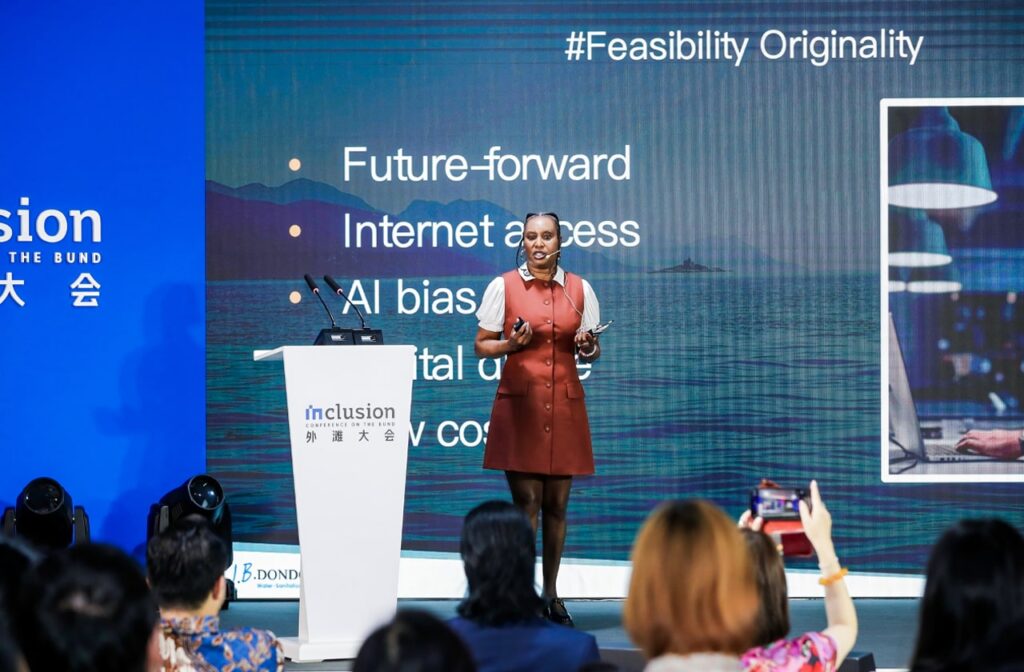
As the Inclusion Conference showcased, the reach of 10×1000 Tech for Inclusion extends beyond traditional educational programs. By offering a global platform for innovators, 10×1000 is shaping a future where technology drives both inclusion and sustainability. The organization’s commitment to nurturing tech leaders dedicated to these principles could pave the way for a more equitable and sustainable world.
“At 10×1000 Tech for Inclusion, our mission is to empower aspiring tech leaders not only by offering a place to learn, but by supporting them at every step—creating lifelong learning opportunities, enabling meaningful connections, and offering guidance that helps them drive real change and digital economic growth,” said Jennifer Tan, director and program head at 10×1000.
For more details about 10×1000 Tech for Inclusion and its initiatives, visit this page.
This article was published in partnership with Ant International.
